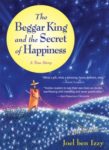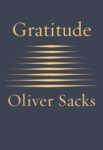 When the Mega-Million lottery swells to what seems to be a bursting point, I buy a ticket, giddy imagining the happiness those millions would bring. Or would they?
When the Mega-Million lottery swells to what seems to be a bursting point, I buy a ticket, giddy imagining the happiness those millions would bring. Or would they?
From Aristotle and his Nicomachean Ethics to the U.S Declaration of Independence to “Don’t Worry, Be Happy,” a simple little ditty that you’ll hum all day, happiness—or at least its pursuit—is a mainstay in our lives. Yet try to define happiness, or how we can find more of it. It’s not quite simple nor obvious. Is the secret of happiness really a secret, or perhaps an art or a science?
I recently attended a lecture on the science of happiness by Laurie Santos, Yale Psychology Professor and Head of Silliman College. Forget the flitting bluebird version, this research equates happiness to our emotional health and well-being.
Santos designed the wildly popular “Psychology and the Good Life,” part theory and part practice class. An unprecedented 1,200 Yale undergrads signed up for the initial offering. The students learned that while theory might be simple, as the old saying goes, the difference between theory and practice is well…practice. As most of us already know, changing behavior is not a walk in the park, as happy as that might be.
Among the myths that Santos debunks is that neither our genetic makeup nor circumstances (like my not-yet-won gazillions) determine our happiness; in fact, we can control about 40 percent of our personal ‘happiness quotient’ through our perspective and actions.
In “The Beggar King and the Secret of Happiness”, author Joel ben Izzy is a professional storyteller who (literally) loses his voice and begins a quest to regain it. 
In this Matryoshka doll stories within a story, ben Izzy weaves sage wisdom of legends and fables with his own journey where he discovers treasures and truths about the secrets of happiness, including its inseparable bond with gratitude.
This is also one of the insights from research from the science of happiness. Practicing (that verb again) gratitude improves our mental outlook; it is an antidote to “me, me, me”—or worse, “woe is me”—perseveration.
“Gratitude” is a short but beautiful book by the late Dr. Oliver Sacks, written after he learned that he had terminal cancer.  Sacks wrote,
Sacks wrote,
“I cannot pretend I am without fear. But my predominant feeling is one of gratitude. I have loved and been loved; I have been given much and I have given much in return; I have read and traveled and thought and written….Above all, I have been a sentient being, a thinking animal, on this beautiful planet, and that in itself has been an enormous privilege and adventure.”
In “The Happiness Project,” a memoir from her personal year-long experiment, Gretchen Rubin noted, “Gratitude brings freedom from envy, because when you’re grateful for what you have, you’re not consumed with wanting something different or something more. That, in turn, makes it easier to live with your means and also be generous to others. Gratitude fosters forbearance—it’s harder to feel disappointed with someone when you’re feeling grateful toward him or her.”
I first read “The Beggar King” years ago after I had had the same surgery that robbed ben Izzy of his voice. I am grateful that I did not lose my voice; alas, I also didn’t gain the ability to carry a tune, which I had daydreamed might be a lucky side effect.
However, I can whistle along to Bobby McFerrin’s happy tune, and on this rainy day curl up and once again read about how a king lost and then found the secret of happiness. And that is bliss!
For more insights on the science of happiness, access these links to watch Santos’ condensed lecture or even better, take the complete online course now offered free through Yale.
For more reading associated with happiness and well-being:
Stumbling on Happiness • The Art of Happiness: A Handbook for Living (Dalai Lama and Howard C. Cutler) • Walden • Authentic Happiness: Using the New Positive Psychology to Realize Your Potential for Lasting Fulfillment (Martin Seligman) • Wherever You Go, There You Are